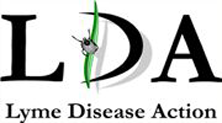A laboratory must be accredited to carry out testing so that it is reliable, and results can be reproduced. They must show that they meet high levels of cleanliness, keep good records, staff are appropriately trained and that they continuously strive to improve their processes. Laboratories are accredited by the International Organisation of Standardisation to meet the international standards “ISO 15189 Medical Laboratories – Requirements for quality and competence”.
However, ISO 15189 is an accreditation of processes but does not assess how appropriate the choice of test is for the diagnosis.
In the UK, Lyme Disease NHS testing can be conducted by national reference laboratories: the Rare and Imported Pathogens Laboratory (RIPL) at PHE Porton in England and Raigmore Hospital in Scotland. As well as being ISO 15189 accredited, RIPL participates in an independent National External Quality Assessment Scheme (NEQAS), which ensures the Lyme Disease tests being used are comparable, safe and useful to the patient.
Reference
Lyme disease: sample testing advice – GOV.UK. https://www.gov.uk/guidance/lyme-disease-sample-testing-advice. Accessed March 4, 2021.

 Printer Friendly
Printer Friendly